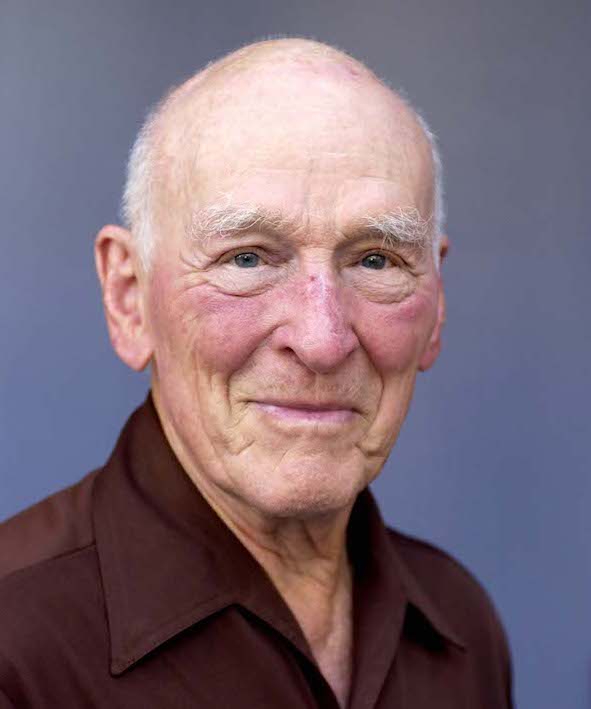
Among the many distinguished members of the Freedom From Religion Foundation was Nobel Laureate Paul D. Boyer, who died on Saturday, June 2, at age 99 in Los Angeles.
We were privileged at FFRF to have met Professor Boyer, who spoke at the 2002 national convention in San Diego and was a guest on FFRF’s Freethought Radio. Boyer was an enthusiastic Life Member, who told us “how pleased” he was to have found a group like FFRF.
In his short autobiography on the Nobel website, Boyer referred to himself as a “devout atheist,” and added: “I wonder if in the United States we will ever reach the day when the man-made concept of a God will not appear on our money, and for political survival must be invoked by those who seek to represent us in our democracy.”
Boyer pointed out in his talk to FFRF that, as might be expected, “belief in God and in a hereafter dropped considerably as the level of scientific achievement increased.” He pointed to a recent survey showing that only 10 percent of members of the U.S. National Academy of Sciences, representing “a pinnacle of achievement for American scientists,” believe in a god.
“My views have changed from a belief that my prayers were heard to clear atheism . . . Over and over, expanding scientific knowledge has shown religious claims to be false,” he said in his speech, “A Path to Atheism.” “None of the beliefs in gods has any merit.”
Boyer was born in July 31, 1918, in Provo, Utah, the middle child in a family of six in a loving home. His mother’s death from Addison’s disease when he was 15 awakened his interest in studying biochemistry. Although he became a “deacon” in the Mormon church at age 12 and graduated from Brigham Young University, where he met his wife Lyda, Boyer’s pursuit of science during graduate studies at the University of Wisconsin-Madison altered his perspective. He earned his doctorate in 1943.
Moving to Stanford to do postdoctoral research in a war project, he and his wife ceased going to Mormon meetings. By the time he was 25, he had “slipped over from agnostic to atheist,” Boyer told Freethought Radio. Lyda, too, became an atheist.
In 1955, he went to Sweden on a Guggenheim Fellowship. Boyer became a faculty member of the University of Minnesota, where, in 1956, he was appointed to the Hill Foundation Professorship. Some years later, he and his family, including two daughters and a son, moved to Los Angeles, where Boyer continued research into biochemistry at UCLA. In 1965, he became director of the newly created Molecular Biology Institute, where he taught chemistry and did research for over half a century, studying enzymes, the proteins involved in biochemical processes in the animal and plant cells.
Boyer shared the Nobel Prize in Chemistry in 1997 with John E. Walker and Jens C. Skou “for their elucidation of the enzymatic mechanism underlying the synthesis of adenosine triphosphate (ATP).” As The New York Times obituary put it, he shared the prize “for his contributions to understanding the way all organisms get energy from their environments and process it to sustain life and fuel their activities.” He discovered the underlying mechanism for ATP (adenosine triphosphate) formation. “The concepts of Boyer’s binding change mechanism helped to clarify the basic chemistry of life on Earth, what makes life ‘go,’” according to the University of Minnesota at the time Boyer was awarded the Nobel. “Imagine trying to repair a TV if you didn’t know how it worked. This tells you how the machinery of the cell works,” Boyer explained to The Times on the day his Nobel was announced.
He and Lyda traveled widely in retirement. He became an advocate of death with dignity following the illness and death of his son, Douglas, in 2001.
Paul D. Boyer was a gentle giant in the world of science, who pursued knowledge for the benefit of all.
Photo by Brent Nicastro

